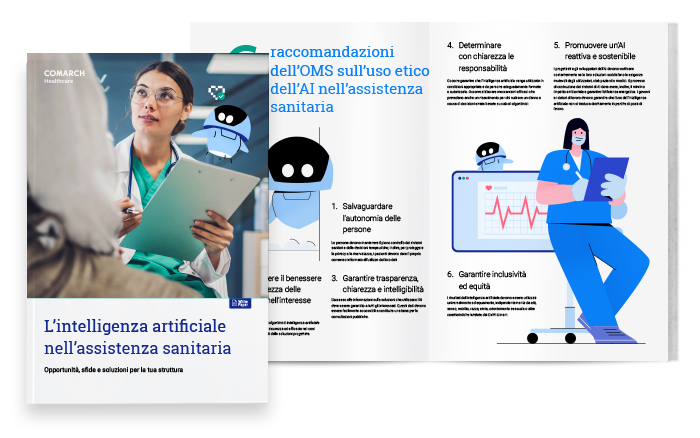White Paper
L’intelligenza artificiale nell’assistenza sanitaria
Opportunità, sfide e soluzioni per la tua struttura
Sapevi che le origini dell’intelligenza artificiale risalgono agli anni ‘50 del XX secolo? Purtroppo, all’epoca numerose limitazioni ne impedivano l’applicazione su larga scala nella medicina. Solo con l’avvento XXI secolo e lo sviluppo dell’apprendimento profondo è stato possibile superare questi ostacoli.
Oggi sistemi di intelligenza artificiale sono già in grado di apprendere da soli e analizzare algoritmi complessi. Le moderne tecnologie basate sull’AI forniscono un supporto insostituibile nella pratica clinica, nella valutazione dei rischi e nella diagnostica. Si tratta di risultati che, in un’epoca di grave crisi finanziaria e di personale nel settore sanitario, non possono essere ignorati.
Scarica gratuitamente il materiale di approfondimento per saperne di più su:
- Evoluzione dell’AI nell’assistenza sanitaria;
- Vantaggi dell’utilizzo dell’AI;
- Soluzioni Comarch nell’ambito dell’AI in grado di supportare la tua struttura medica.
